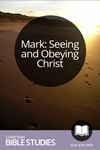The Grinch is a humorous and whimsical character, so it's easy to laugh at Seuss's over-the-top description. However, we have all let our "inner Grinch" out of hiding, and when we see glimpses of this character in ourselves, it's not so funny.
The good news is that we are not alone in our frail, human state. The Bible is full of men and women who, despite their best efforts, suffer from a chronic lack of love.
Jonah is one of the most striking examples of a heart in need of expansion. God calls, Jonah runs.
He survives not only being thrown into the raging ocean but being swallowed whole by a large fish and housed in its belly for three days. While in the fish, Jonah prays eloquently to the Lord, thanking him for his hand of safety. After the three days are up, the fish promptly vomits Jonah back onto dry land unscathed.
Then, Jonah finally does what the Lord asks: He travels to Nineveh, an enemy of the Israelites, to proclaim the Lord's judgment. The Ninevites almost immediately repent and are shown mercy by the Lord. The book ends with Jonah brooding over Nineveh, angry with God for the grace he gave to the people Jonah so despises.
On the surface, Jonah seems to be about a melodramatic and fearful man who begrudgingly obeys God's will and—in a surprising narrative twist—is actually angry when he is successful at his task.
To truly understand Jonah's bitterness and fear, however, it's important we understand what Jonah is facing when God tells him to go to Nineveh. During this time period, the Ninevites were not only enemies of the Israelites but had violently oppressed the nation of Israel. God's command for Jonah, therefore, is not just unreasonable. It's terrifying—and seemingly impossible.
These cultural realities are most likely a huge part of why Jonah runs from God's will. He is naturally terrified of the enemy. Maybe he's also afraid of failure. Proclaiming God's judgment to an enemy nation is a daunting task. Perhaps Jonah figures the odds of the Ninevites heeding God's command are too small for him to risk his life and dignity.
At the core of Jonah's trepidation, though, there is something even deeper at work: fear of triumph. Jonah knows that if he succeeds at winning over the Ninevites to the Lord, they will be shown mercy. That's just the kind of god Jonah serves: He shows his abundant grace to undeserving people. Jonah, on the other hand, wants his enemies to suffer.
Pastor Tim Keller says before Jonah confronts the idolatry of the Ninevites, he must first confront the idolatry in his own heart. Jonah, instead of confronting his idolatry, runs from it. In fact, he runs from the very "presence of the Lord" (Jonah 1:3).
Even if Jonah doesn't confront his own idolatry in the beginning of the book, he certainly seems to realize his dislike is there all along. In the beginning of chapter 4 he gives the Lord a seething "I-told-you-so" speech: "Didn't I say before I left home that you would do this, LORD? That is why I ran away to Tarshish! I knew that you are a merciful and compassionate God, slow to get angry and filled with unfailing love. You are eager to turn back from destroying people."
Jonah understands the Lord's character, his merciful history. He knows the Lord has been faithful to the Israelites and to him as an individual. Chapter 2 is an example of Jonah's knowledge. He has the right things to say, and he crafts an eloquent prayer thanking God for his steadfast provision. But his heart is small. He does not want God to extend the same love to his enemies.
Like Jonah, we often have the appropriate and religious words, and even the actions to match those words. But our hearts can be hard, unwilling to extend God's love to others.
Only God can expand our small, fragile hearts. He has given us his grace through the death and resurrection of his son, Jesus. Because of Christ working in us, our capacity to love others—even our enemies—increases. In fact, God promises this to his people: "I will give you a new heart, and I will put a new spirit in you. I will take out your stony, stubborn heart and give you a tender, responsive heart" (Ezekiel 36:26).
When we say "yes" to God and his love for all people, he will stretch our hearts. This expansion is unpleasant at times, especially when he asks us to love people who make us uncomfortable or who have hurt us, but the challenge will bring our hearts closer to the heart of God.












